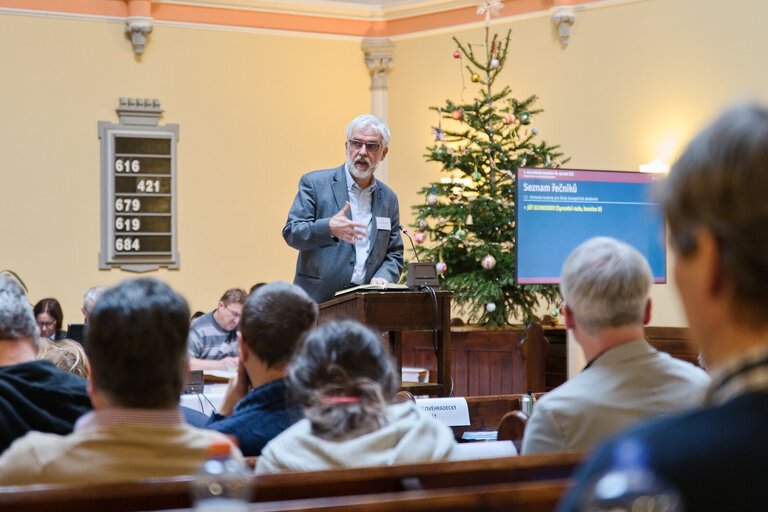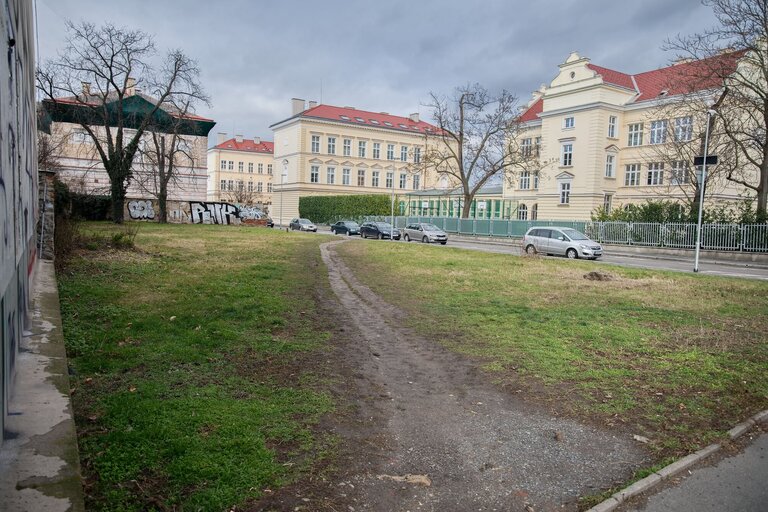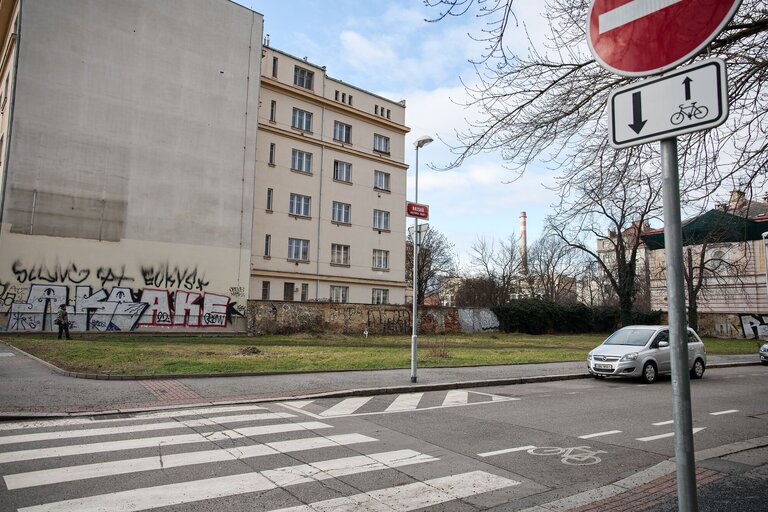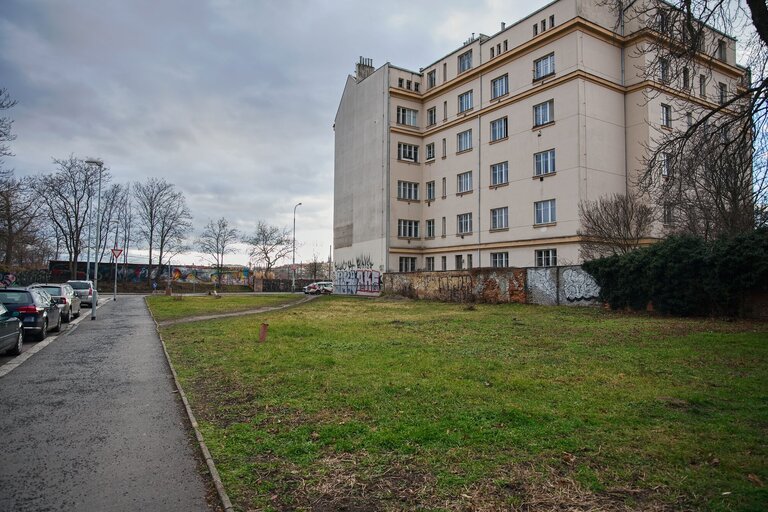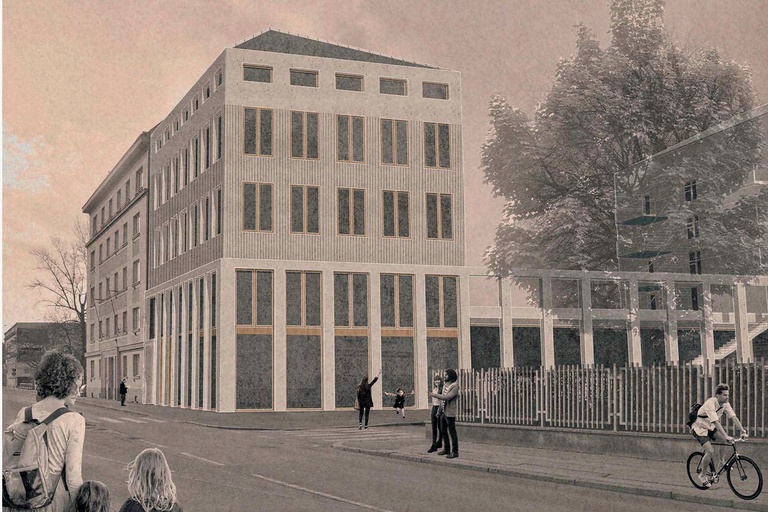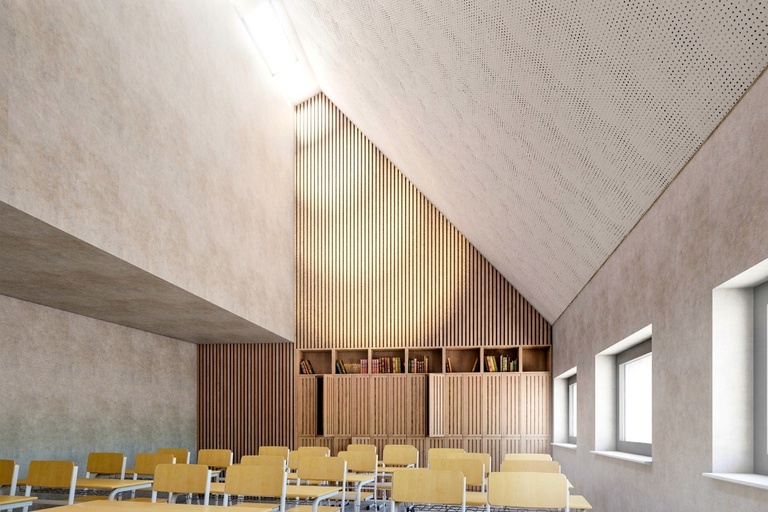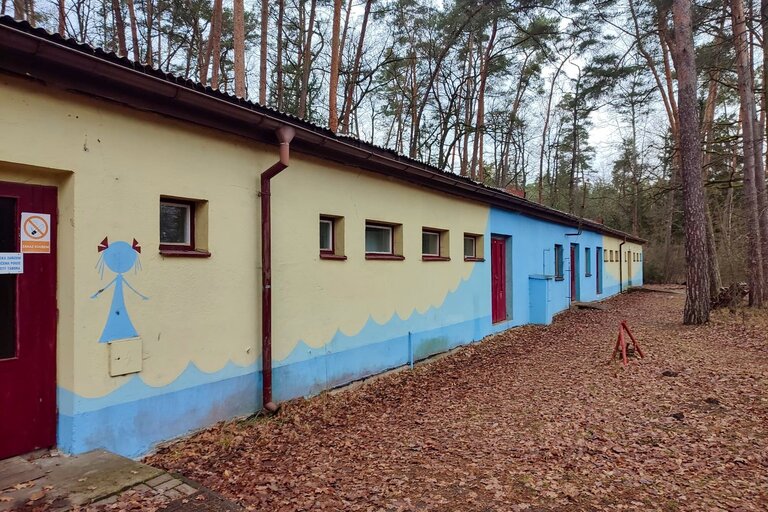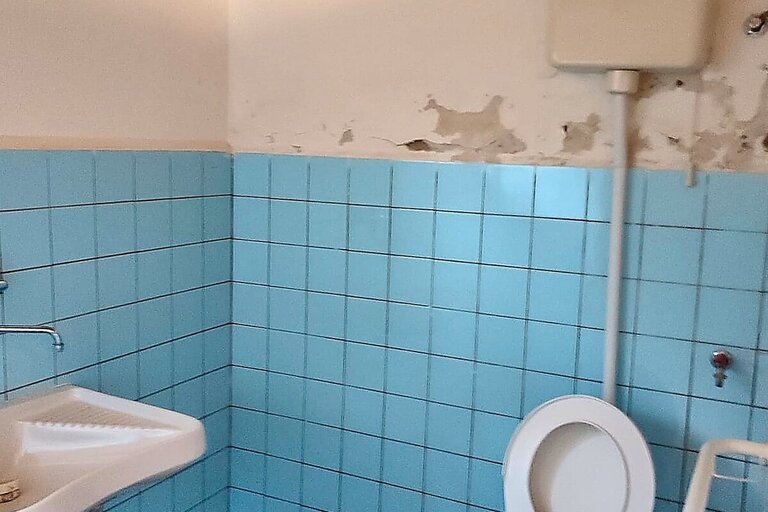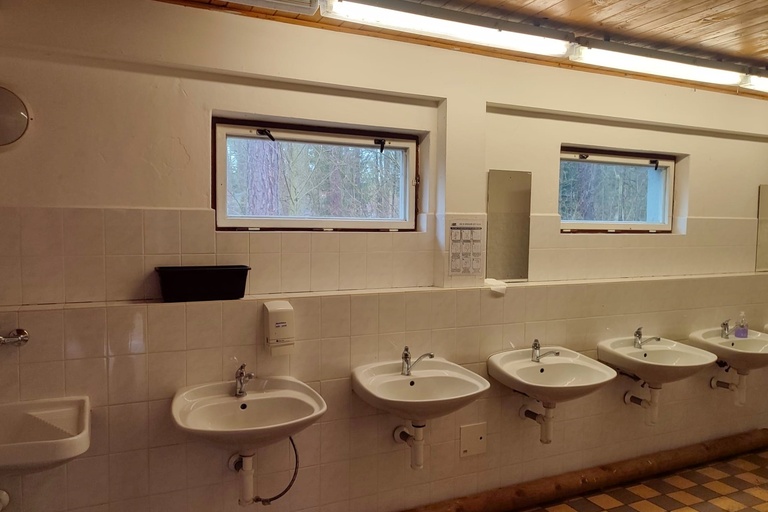New building for the Protestant Academy in Prague
The Synodal Council approved a major school construction project at its special meeting. A brand new building is to be constructed in the Prague district of Holešovice. A considerable state subsidy will help with the costly construction. Construction work is due to start this year and the educational institutions - the Bratrská škola (Brethren School) and the Evangelical Academy Prague - are expected to move into the new building in September 2027.
On Saturday, 11 January 2025, an extraordinary meeting of the 36th Synod was held in the Evangelical congregation in Vinohrady, Prague. The main topic of the meeting was a new building project for a school of the Evangelical Academy. In the second part of the agenda, the synod members discussed the renovation of the sanitary facilities at the Jan Amos Komenský camp in Běleč nad Orlicí.
The decisive factor for convening the synod on an extraordinary date was the possibility of receiving a substantial subsidy from the state. In order to be able to process this administratively, the necessary procedural authorisation was required from the synod. The synod members supported the proposal and voted in favour of its implementation with a clear majority of 64 out of 68 votes (three votes against, one abstention).
The new building is to be located in Prague's Holešovice district on the corner of Železničářů and Rajská streets. The building plot is located within sight of the current headquarters of Bratrská škola. It is a strategic location with good transport links, but also with the prospect of population growth in the area. The Prague-Bubny district in the north of the metropolis, which still consists partly of wasteland and undeveloped areas, is set to experience an urban upswing in the coming years. The planned residential development is expected to increase the number of inhabitants by 25,000, which should naturally also be reflected in the demand for school facilities, which already exceeds supply. This trend is confirmed by the words of Helena Wernischová, coordinator of schools at the Evangelical Academy: ‘There is an acute shortage of capacity in Prague, and the construction of new places has been very neglected over the last 30 years. In the 7 years that I have been looking after the EA schools, the number of pupils in our schools has risen to the current figure of almost 1500 pupils.’ The new building would provide space for 200 primary school pupils and 200 secondary school pupils. This includes pupils in grades 1-9 in the primary school and eight secondary school classes (four classes in two orientations). Furthermore, according to Helena Wernischová, both subject areas at the Evangelical Academy in Prague - especially the Pedagogical Lyceum - are in high demand and will continue to be needed in the future.
The situation at the schools of the Evangelical Academy in Prague has been critical for years
The new building will provide a new location for the two Prague schools of the Evangelical Academy, i.e. both the primary school (Bratrská škola) and the EA Praha - Pedagogical Lyceum and Secondary Technical School. Both are currently housed in inadequate buildings in terms of capacity and infrastructure.
The critical situation of the Prague schools, which are leased by the Prague 4 and Prague 7 districts, is something that the Church, as their founder, has been trying to resolve for almost ten years. ‘The two Prague schools have been in a difficult situation for a long time. I have been on the Synodal Council for nine years and not a week goes by that I don't think about how to deal with these conditions. Both schools are housed in very inadequate buildings that are increasingly falling into disrepair. One school has already been cancelled and the conditions in the other are untenable. The owner of one of the buildings has not agreed to let the church invest in repairs and does not maintain it himself,' said Synod Curator Jiří Schneider in his statement on the proposal. He thanked the headmasters of the two schools, Rostislav Konop and Tomáš Biňovec, for their patience. ‘We know that this will take a long time and we thank you for your patience despite the sometimes makeshift teaching conditions,’ said Schneider.
The search for alternative rental premises was unsuccessful, so in 2017 the Synodal Council initiated a project to construct a new building in Prague-Modřany and Prague-Holešovice. However, due to complications with the planning approval, the church was forced to withdraw from the further progress of the project in Modřany. Instead, in 2021, the Synodal Council submitted a proposal to amend the construction project in Prague 7 to allow both schools to operate.
The construction will be financed from several sources, a major contribution being a state subsidy
The project proved to be viable. We managed to establish a stable cooperation with the Prague 7 district and negotiate the conditions under which the project is to be realised. The school building will be constructed on land belonging to the Municipality of Prague 7 on the basis of a contract concluded between the Evangelical Church and Prague 7 for the granting of building rights. The contract, signed in 2018, guarantees the church the right to build on the district's land free of charge for 99 years, i.e. until 2116.
Of course, the financial framework is crucial. It provides for the coverage of financial expenses from several sources and was already approved by the Synod in 2021. These are mainly funds from foreign donors, which were used to purchase the building of the Protestant Theological Faculty after 1989, which was sold to Charles University for CZK 80 million in the 1990s. These funds, together with a portion of the financial equalisation (CZK 40 million) intended for diaconia and development projects (DaRP), make up the core of the own funds. In addition, the synod approved a loan from the personnel fund in the amount of CZK 80 million in 2021. Without the grant from the State Environmental Fund approved in November 2024, which is to account for around 30% of the total budget, and a commercial loan, the amount of which (up to CZK 110 million) could be estimated after the grant was approved and which has now been approved by the extraordinary synod, the construction could not have been realised.
Key debate at the synod: not whether, but how the project should be financed
The debate at the synod centred on the question of financing. Brother Milan Přívratský (Seniorate Liberec) presented a counter-proposal, according to which the school construction project is part of the investment in the church's own assets and the church should be able to finance the construction from its own funds (without resorting to a commercial loan). As the acceptance of this proposal would have meant a change in the investment strategy of the personnel fund, which would have affected the expected level of parish contributions, the proposal did not meet with the necessary response. Instead, in a secret vote, the synod members supported the original resolution proposal, which envisaged the utilisation of a commercial loan, by a clear majority.
The next step will be to invite tenders from a construction company for the building. If there are no unexpected complications, construction should begin this year. According to a preliminary estimate, classes in the new building should start in September 2027.
Building planning taking into account modern energy and environmental standards
The architectural project by Hana Seho's office is very complex and has taken many years of careful preparation. The building is designed as an energy-passive house with a focus on ecological and economic sustainability and as such could become a model project for a 21st century urban facility. Among other things, it provides for a green living terrace, the use of heat pumps, photovoltaics, a sophisticated ventilation and shading system, rainwater storage for irrigation and sufficient light for lessons and for the pupils to spend time in. This is one of the reasons why the project was subsidised by the state. It is a unique project in the Czech (church) education sector. The proposal received special attention from the delegates of the Conference of Church Schools last November, among others.
Church renovates inadequate sanitary facilities in Běleč nad Orlicí
The second part of the meeting was much shorter and concerned the planned renovation of the sanitary facilities in the Protestant camp in Běleč. These have been inadequate for a long time and do not meet the necessary hygiene standards. They are also not wheelchair accessible, which is essential for people with disabilities. The building was last extensively renovated in 1984 and partially renovated in 1997. It serves as a sanitary facility for the guests of the large and small camps in Sedmik and Souchatí and houses storage rooms and technical equipment in its centre. The technical condition of the building no longer meets today's requirements, both internally, i.e. the quality of the sanitary facilities themselves, and externally, i.e. the building's energy consumption and the completely inadequate and insufficient type of heating provided by several direct electric heaters.
The new building will be divided into four units. There will be separate toilets and showers for men and women as well as a multi-purpose club room with a kitchen. There will also be technical facilities such as solar panels, a heat pump and an air conditioning system. The publicly accessible parts will be fully wheelchair-accessible. The façade of the building will also be insulated.
With regard to the budget, it is assumed that around two-thirds of the costs will be covered by own funds, while the remaining costs, i.e. just under CZK 7 million, will be covered by a grant.
The synod members also gave the green light for this project and the proposal was unanimously approved. The project is to be realised in the course of 2025. As General Secretary Martin Balcar emphasised, sanitary facilities will only be available provisionally this season, but this should not affect the operation of the camp. The new sanitary facilities should be ready by June next year at the latest.
